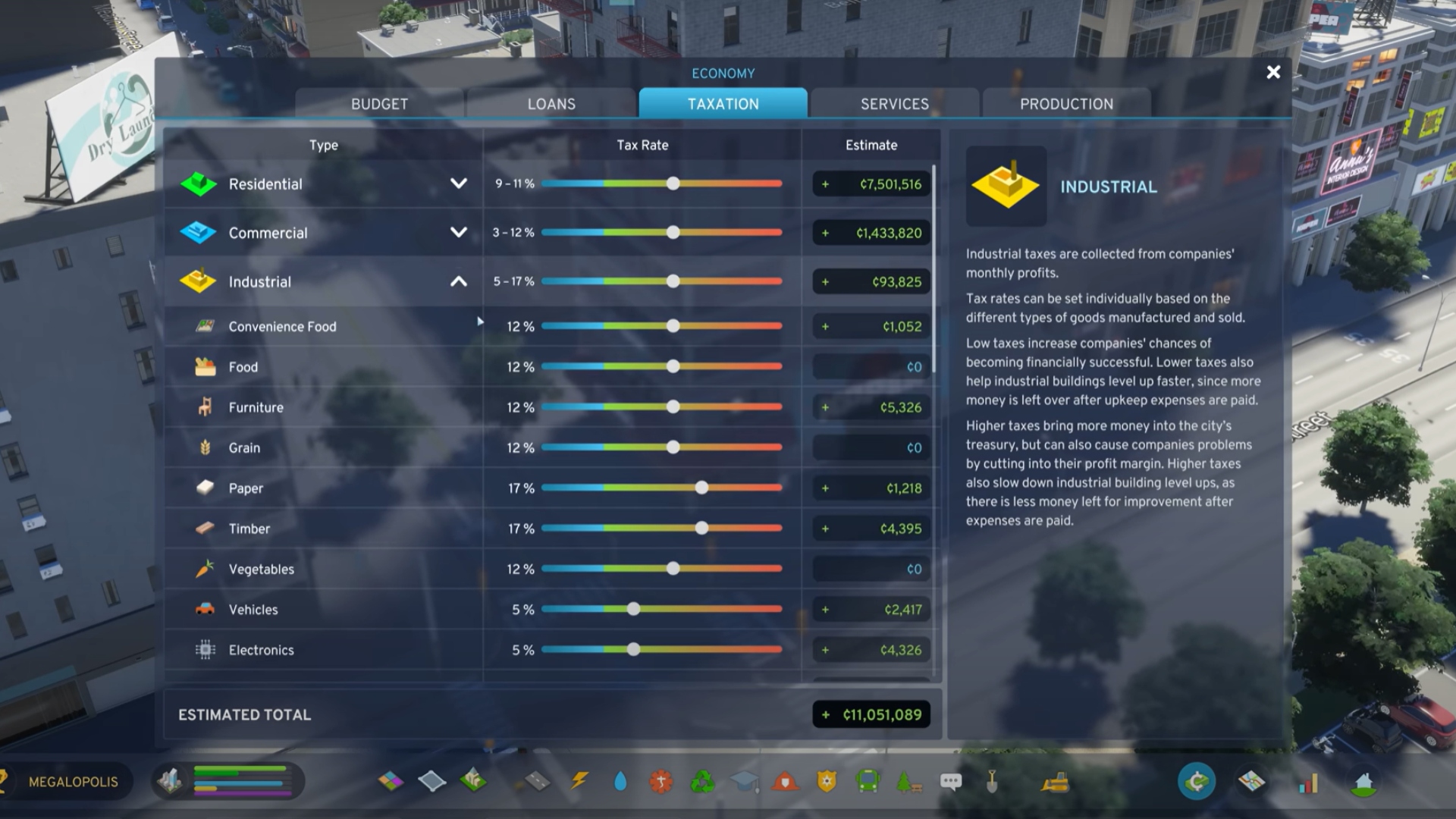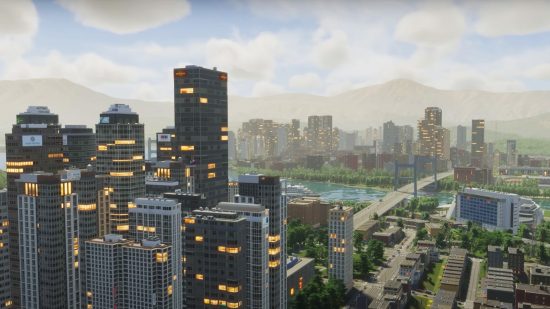The Cities Skylines 2 economy has me both excited and intimidated. In the original Cities, I have a pretty simple task. Keep residential, industrial, and commercial taxes around 14% and everything will be more or less fine. With the Cities Skylines 2 release date almost upon us, however, I think it’s time to brush up on my supply and demand, as CS2 looks to deliver a more detailed and realistic simulation of a working city. That means more specialized industries, and a lot more taxes. Get ready for the next generation of the Colossal Order city-building game. Cities Skylines 2 is all about that money.
We know plenty about Cities Skylines 2 maps and Cities Skylines 2 traffic. But all of that will be irrelevant unless we can balance the books and keep a steady flow of cash in and out of town. To begin with, the entire production management system is overhauled.
There are now nine specialized industries in the base game. Four of these are farms where you can either raise livestock or grow grain, vegetables, or cotton. After that come the industries. You have forests which produce timber, and underground deposits from which you can extract ore, stone, or coal. Finally, there is the option to drill for oil.
Every single one of these industries can be managed down to the smallest detail. You can decide how much you want to produce, set prices for any surplus, and choose how much you want to export to other cities or keep to yourself. A lot of this micro management is optional, Colossal Order says, so if you prefer the big picture and want to leave the finer details to someone else, likely that will be an option.

Taxes are also much more detailed now. In Cities Skylines 1, you’d levy general taxes on industrial, commercial, and residential areas. Now, every individual business, material, and product can be taxed. Manage taxes on everything including food, furniture, grain, paper, timber, vegetables, vehicles, electronics, metal, oil, plastics, and petrol. I mean, that’s a huge list, so if you like setting taxes, Cities Skylines 2 is your game.
And of course, the way you manage these taxes will affect your economy. If you make furniture production cheaper, more industries and factories dedicated to furniture will appear in your city, and the happiness of your citizens might increase as they find themselves in more comfortable homes. However, if taxes are too low, you won’t get a steady income, and you may end up overproducing one commodity to the neglect of others.
But there’s even more to deal with, as companies will now fire employees, giving you another plate to spin when it comes to managing the money. Let’s say your oil drilling is having a negative effect on your city’s environmental status and making people unhappy.

You boost Cities Skylines 2 taxes to slow production, but in turn, that means oil companies have less money, which means they make job cuts, which leaves more of your Cims unemployed – and unhappy. It’s a carousel of decision-making and consequence which feels like running a city for real, and I can’t wait to play.
In the meantime, however, get the full Cities Skylines 2 system requirements so you know your PC is up to the task, and what Cities Skylines 2 DLC and Cities Skyline 2 mods we can expect post-launch. You might also want to try some of the other great management games available on PC.
